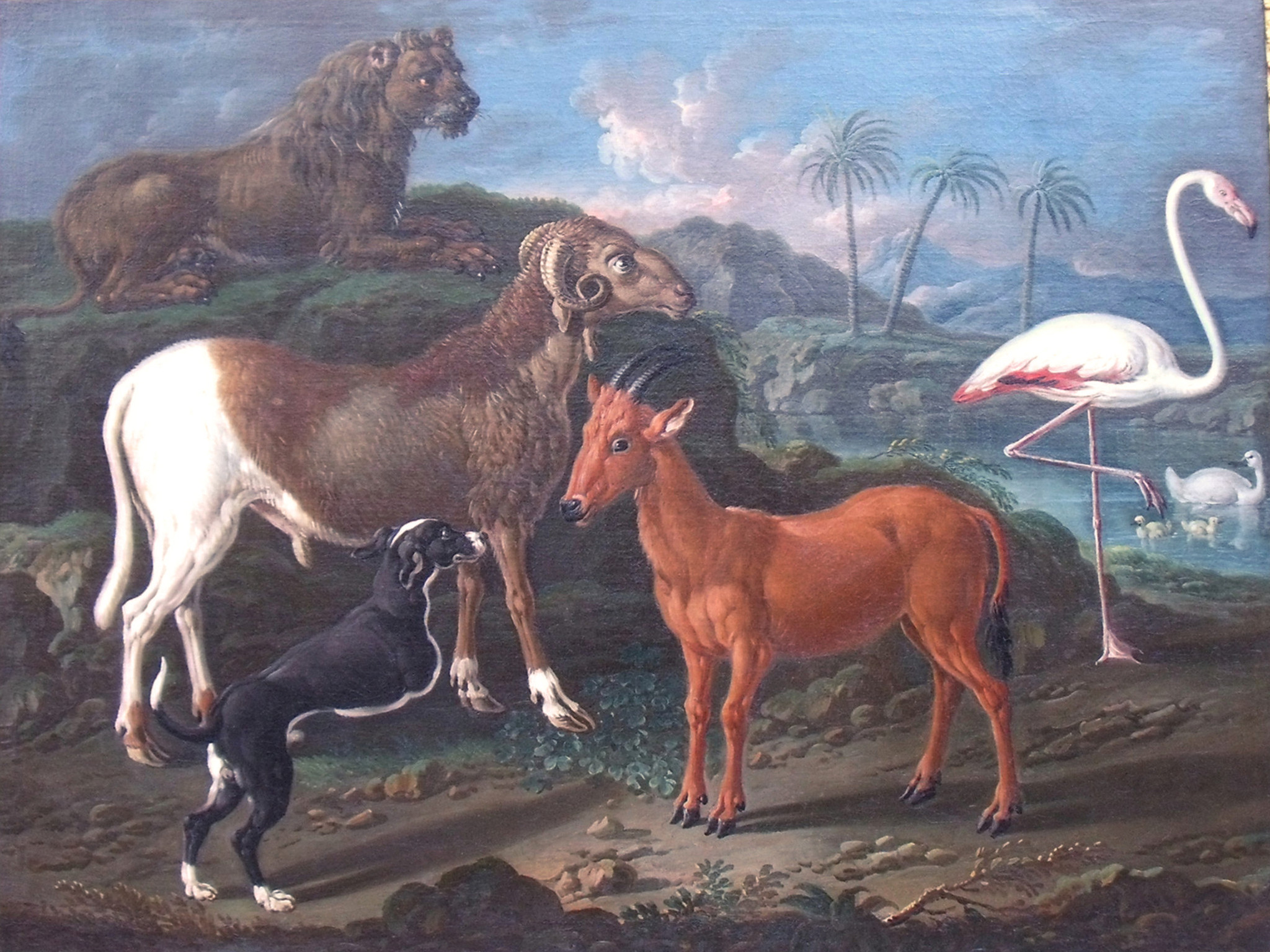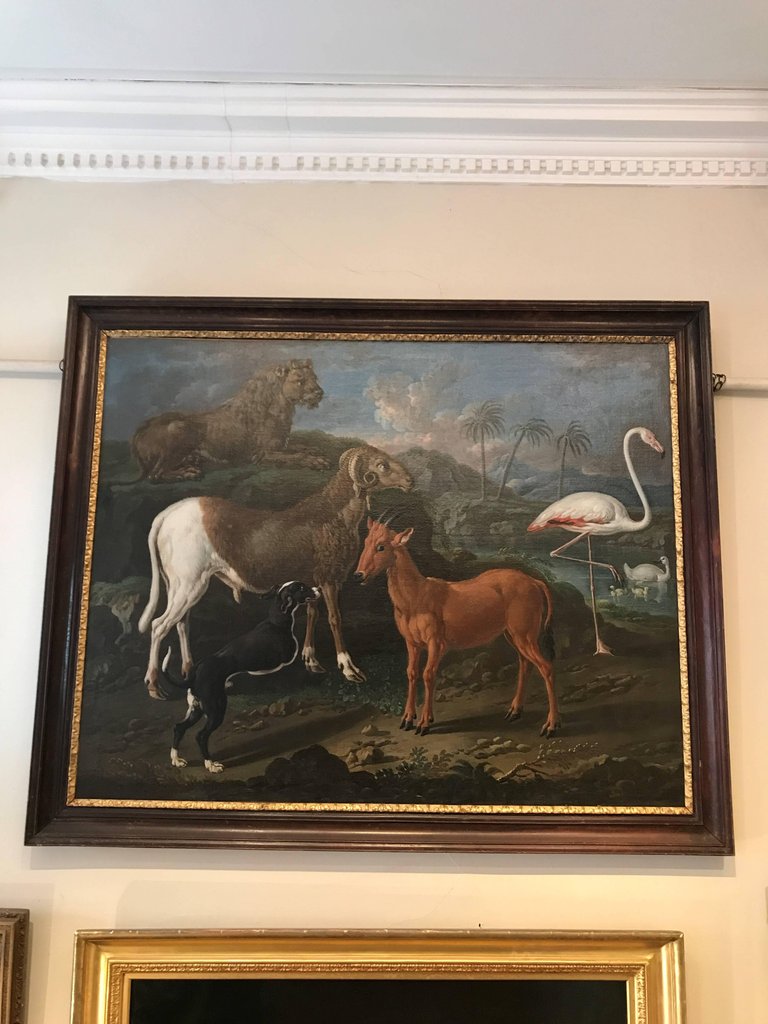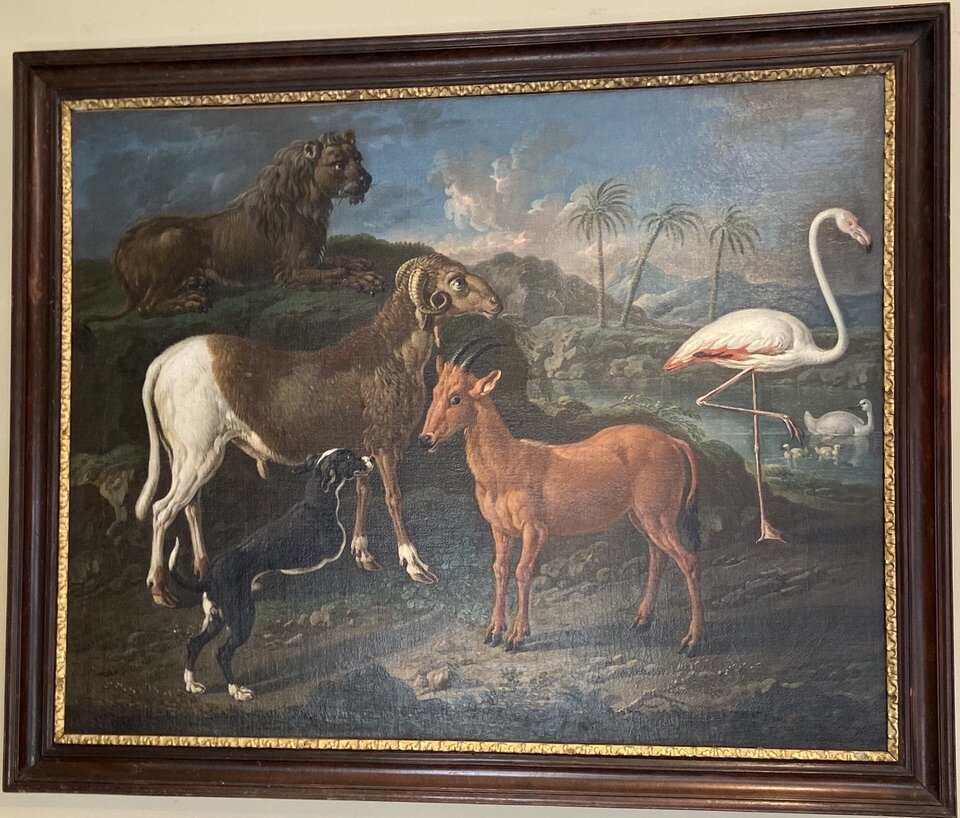Philipp Peter ROOS called Rosa de TIVOLI (Frankfurt, Germany 1655-1706 Tivoli, Italy)
The Four Temperaments;
a Sheep, a Goat, a Lion, a Dog, a Flamingo and Ducks in a Landscape with Palm Trees
oil on canvas
99.8 x 126 cm
Philipp Peter Roos, known as Rosa da Tivoli was the eldest son and pupil of Johann Heinrich Roos, the most important German animal and landscape painter from the second half of the 17th Century until he was surpassed by this son, Philipp Peter.
Most European courts, especially in Russia, England and Sweden, possessed paintings by Rosa da Tivoli, which are now in numerous museums. In 1677, The Landgrave (Count) Ernst von Hessen- Kassel granted him, at the age of 20, a pension to go study in Rome. There he studied with a Baroque painter and decorator, whose daughter he married after he converted to Catholicism. Roos established himself around 1684 in Tivoli.
He bought numerous animals, which he could study in drawing and in painting. His friends called the house with its menagerie ‘Noah’s Ark’. In 1691 he returned to Rome.
The concept of the four temperaments has been around since the days of the Greek physician Hippocrates (circa 400 BC). His philosophy was that our personality traits were based on the levels of our bodily fluids. He also recognized that while we were each unique, we all shared some of the same traits. These he dubbed the four humors: the Choleric, the Sanguine, the Phlegmatic, and the Melancholy.
Designed by a 17th Century mind, the interpretation to give to this painting remain mysterious and highly personal! We thought that the lion could represent the Sanguine (enthusiastic, active, and social), the sheep would then be the Melancholy (analytical, wise, and quiet), the goat would be the Phlegmatic (relaxed and peaceful) and finally the dog – who is missing two paws when everyone has four and that the flamingo is drawing this number with its legs - would be the Choleric (short-tempered, envious, difficult to please). We love this fascinating painting which summons both our aesthetic sense and our intellect.




